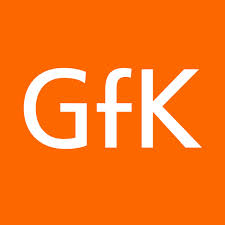 Two in three worried about inflation; half have used coupons in bid to curb spending
Two in three worried about inflation; half have used coupons in bid to curb spending
16 August, 2013, SINGAPORE – In a relatively safe and stable country such as Singapore, many locals are largely more concerned about issues directly related to the economy and finances over others such as crime and lawlessness as well as drug abuse, concerns which rank relatively high in some other countries around the region.
In a recent online survey conducted by GfK, 65 percent of respondents in Singapore, the highest level across all the Asia Pacific countries surveyed said that inflation and high prices are among their top 3 concerns. Recession and unemployment (43%), followed by cost of healthcare (42%) trail as the next two greatest worries among locals.
GfK polled over 40,000 consumers aged 15+ across 28 countries, including 11 from Asia Pacific – Australia, China, India, Indonesia, Japan, South Korea, Taiwan, Thailand and the latest additions of Singapore, Malaysia and Vietnam. In Singapore, over 1,200 respondents were surveyed on their attitudes, behaviors and values across a range of topics.
“Generally, Singaporeans are worried about how the global macro-economic factors will impact their day to day livelihood, but through the survey, we also noted that there are other key areas which are causing anxiety among smaller groups of people,” commented Stanley Kee, Managing Director for GfK in Southeast Asia. “For instance, 1 in 5 (19%) are concerned about global warming and environmental pollution while 16 percent has indicated immigration as a source of concern.”
When it comes to the crunch to curb their spending, one of the first to go are outdoor entertainment and leisure activities such as dining at restaurant (56%), going out for entertainment such as movies, sports events and performances (45%) and drinks (32%). Singaporean consumers also said they have in the last 12 months cut back on spending on clothing and shoes (39%) as well as leisure travel and vacation (36%).
“GfK findings have uncovered some interesting trends among various population groups, such as the fact that cost cutting measures are practiced, to a larger extent, by those from the low and medium income households,” said Kee. “Lower income households are also more likely to actively reduce spending on more basic, regular expenses such as food, cell phone cost, household energy use, and education and medical expenses.”
At the same time, consumers in the country are concurrently seeking out means to increase savings, with the top three most practiced ways by over half the surveyed respondents being using a coupon, postponing a purchase until the product is on sale, and shopping more carefully for everyday necessities.
“There has been many deal sites entering the marketplace to offer attractive discounts on all sorts of products and services, and this has been going down well with consumers on the lookout for good buys,” said Kee.
“Especially in times of economic uncertainties, consumers want more bang for their buck, so it is even more important for merchants to come up with enticing promotions. Eventually those who are able to strike a good balance between cost and profits will likely emerge in times of belt tightening in an even better position!”
The consumer insights detailed in this article are drawn from in-depth analysis of GfK’s largest, longest-standing and most robust consumer trends study in the world – Roper Reports® Worldwide. The latest survey was conducted in Jan-Feb 2013.
About GfK
GfK is one of the world’s largest research companies, around 13,000 experts working to discover new insights into the way people live, think and shop, in over 100 markets, every day. GfK is constantly innovating and using the latest technologies and the smartest methodologies to give its clients the clearest understanding of the most important people in the world: their customers. In 2012, GfK’s sales amounted to €1.51 billion.
To find out more, visit www.gfk.com or follow GfK on Twitter: www.twitter.com/gfk_en
